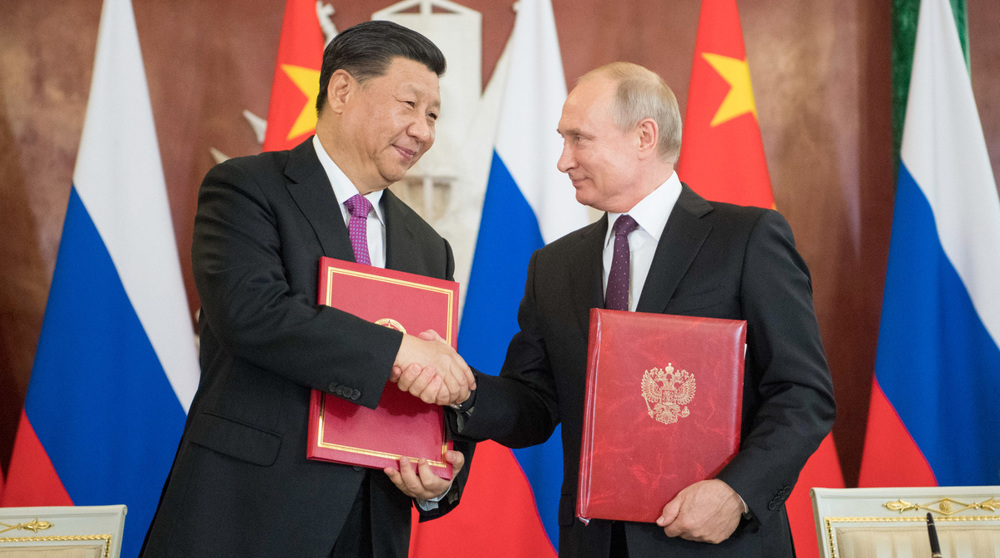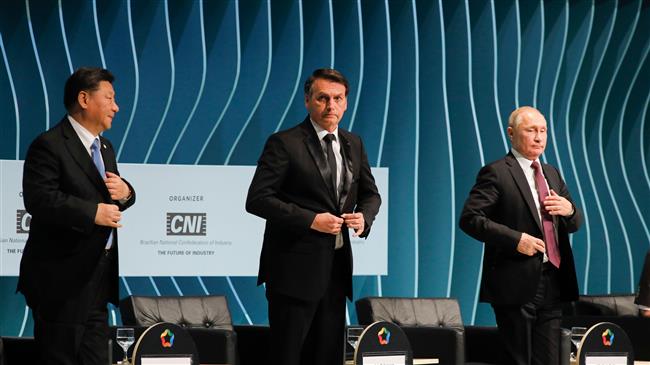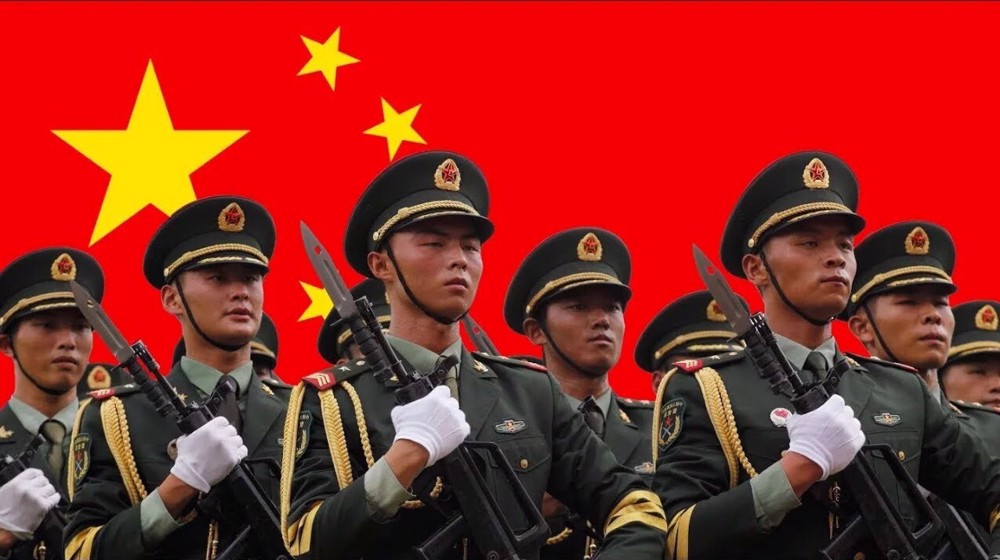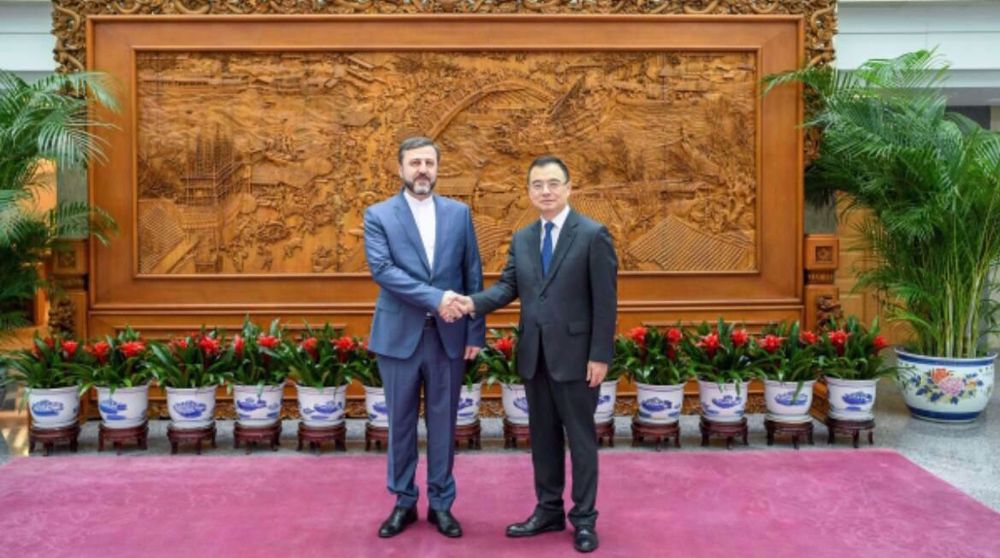Xi, Putin agree to extend China-Russia friendly cooperation treaty
The leaders of China and Russia have commended increasingly close ties between their countries and decided to extend a 20-year-old friendship and cooperation treaty in a show of unity amid strained ties with the West.
Speaking in a Monday video conference with his Chinese counterpart Xi Jinping, Russian President Vladimir Putin said the Sino-Russian Treaty of Good-neighborliness and Friendly Cooperation, which was signed in July 2001 in Moscow, helped Moscow and Beijing take mutual relations to an “unprecedented height” that would be extended for another five years.
He added that the treaty has also enshrined the two powers' support for defending national unity and territorial integrity, at a time when both Moscow and Beijing are at odds with Western states on a wide range of issues.
He emphasized that efforts by Russia and China in coordinating foreign policy have played a “stabilizing role in global affairs.”
"In today's world, such agreements are of serious importance," the Kremlin quoted Putin as saying. "In the context of increasing geopolitical turbulence, the dismantlement of arms control agreements and increased potential for conflict in different corners of the world, Russian-Chinese coordination plays a stabilizing role in world affairs."
The Russian leader noted that the agreement would be automatically extended for another five years when it expires in February 2022.
In his opening address, Xi stressed the importance of a “strategic cooperation” between Russia and China in defending their common interests on the global stage, saying the two countries have worked to uphold a “true multilateralism and global justice.”
The Chinese president added that the treaty has established the idea of enduring friendship in conformity with common interests as well as the themes of the times of peace and development.
He described the treaty as a "vivid example" of improving a new type of international relations and building a community with a shared future for humanity.
The Chinese president said Beijing and Moscow currently enjoy "mature, stable and solid" ties and are able to "withstand the test of any change in the international situation."
He hailed "quite fruitful" outcomes of pragmatic bilateral cooperation, with increasing quality and quantity.
"China and Russia have injected positive energy into the international community and set an example of a new type of international relations through their close cooperation, as the world is entering a period of turbulence and change and human development is confronted with multiple crises," Xi said.
"Under the guidance of the treaty, the two countries will continue to make concerted efforts and firmly move forward despite the difficulties and obstacles ahead," he added.
Russia's relations with the United States and other Western countries remain strained over a range of issues, including allegations of cyber attacks, Moscow's alleged meddling in the US's 2016 and 2020 presidential elections and the conflict in eastern Ukraine.
Putin held a summit earlier this month with US President Joe Biden in which they decided to cooperate on some issues despite their tense relations.
In a meeting on the sidelines of the 11th BRICS in November 2019, Xi said Beijing and Moscow plan to strengthen their alliance to uphold international law in a geopolitical world characterized by unilateralism by other main actors.
The two presidents praised the strength and potential of the ties between their countries and called for maintaining the momentum of the development of relations at a high level.
VIDEO | Another US government shutdown looms as ICE furor grows
VIDEO | EU lawmakers condemn Trump over US human rights abuses
VIDEO | Iranian Embassy marks 47 years since Islamic Revolution with high-level attendance
Funding lapse set to trigger US Department of Homeland Security shutdown
Gaza’s civil defense says 8,000 bodies of genocide victims remain under rubble
Iran: Israeli violations main obstacle to peace, security in Syria
VIDEO | Trump-Netanyahu meeting
VIDEO | Palestine Action wins legal challenge












 This makes it easy to access the Press TV website
This makes it easy to access the Press TV website